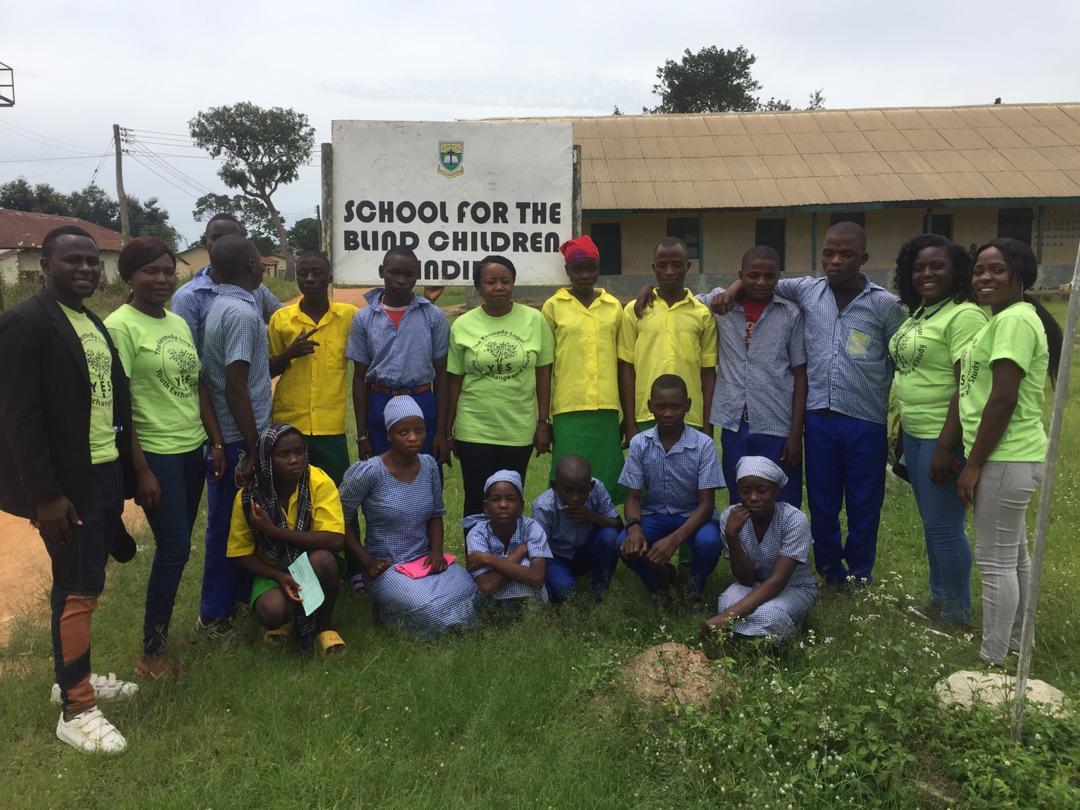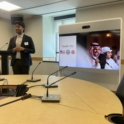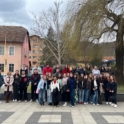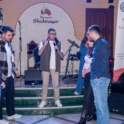Abdulaziz reflects on the highlights from serving as a mentor for CEW.
STORIES
YES Alumni Grant: My Hands Can See
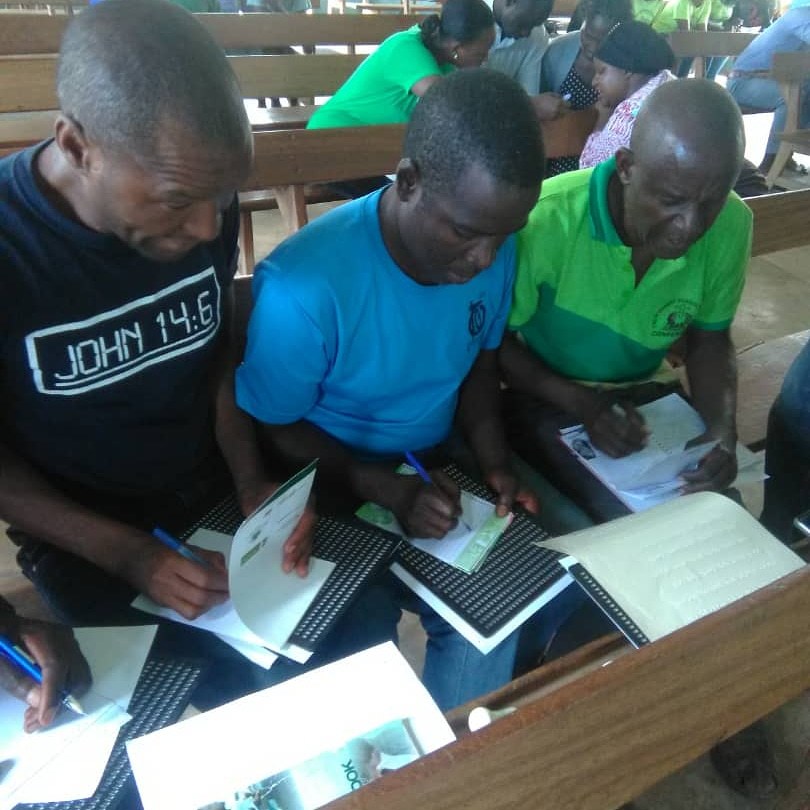
By Dr. Lukolm Nendi (YES 2005-2006, Nigeria, hosted by IRIS in Washington, IA)
My name is Dr. Lukolm Nendi Solomon. I recently finished my undergraduate medical training, and I am looking forward to starting my residency. I am also passionate about volunteering and making a positive change in my community. The YES program profoundly inspired me and gave me an outlet to satisfy my drive to volunteer. It also exposed me to lots of activities. Even with a tight class schedule during my exchange year at Washington High School, I participated in sports, from cross country and track to soccer. I also participated in the youth band at my host family’s church. A doctor’s schedule is very busy, but thanks to the YES program, I learned time management and how to multitask. Therefore, I can manage my career and still volunteer my time in my home community.
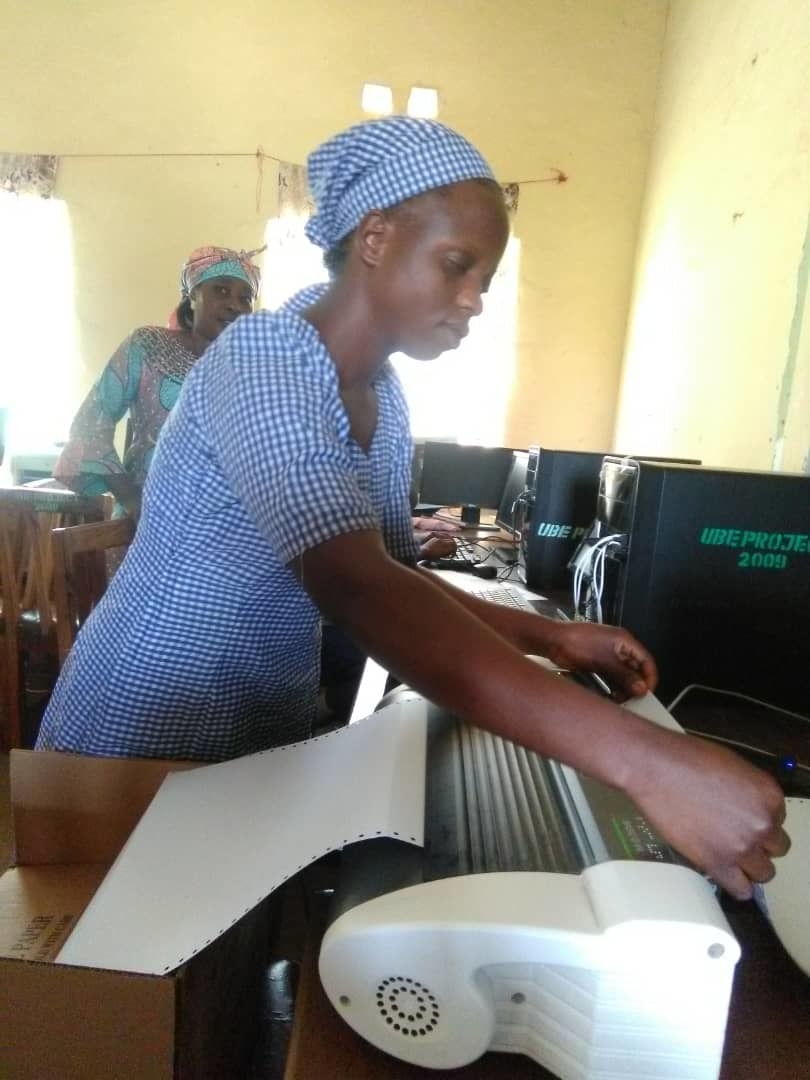
The Mangu local government is one of 17 local governments in Plateau State. It is home to the famous Kerang Springs, known for Swan water, which is a popular bottled water in Nigeria. When the Christian missionaries came to the plateau, they built a series of schools under Church of Christ in all Nations (COCIN). Amongst these is the School for the Blind Children. In Nigeria, individuals who are blind are not provided with the same resources and opportunities as everyone else. Each time I have organized community service activities at the school, staff have complained the school runs like an orphanage. Parents and guardians drop their children off at the beginning of a semester and don’t see them again until they return home for holidays.
I applied for a 2019 YES Alumni Grant to conduct a project to benefit the school and its students. The project consisted of two components: teaching the students to use a typewriter and computer for writing and creating text and teaching their parents how to read and write braille. I felt the need to create an opportunity for family members to learn braille so that their children will be able to continue learning while at home. We also provided the school with manual braille frames.
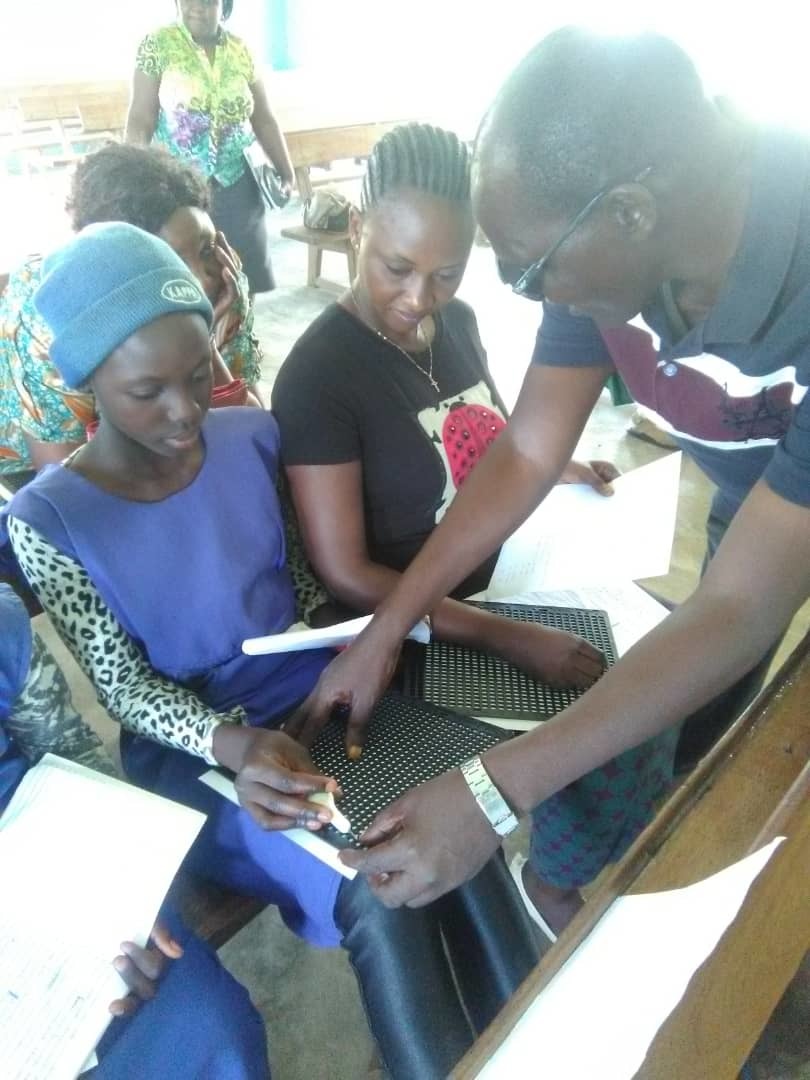
We began by giving the children letters to take home during the holiday to invite their parents to participate in the project. When school resumed, we held a one-hour class each day for three weeks of computer and typewriting lessons for the students and a two-hour class for braille reading and writing instruction for the parents. Three special education teachers from the College of Education Gindiri volunteered to teach the classes. My sister also volunteered every day to oversee the activities and assist in the management of the program. The school opened the training sessions to students of the neighboring schools that share the same compound. At the end of the project, a mock test was given to students and parents. All participants performed well and could not hide their excitement about what they’d learned. They expressed their appreciation to the project team, volunteers, and the YES program for such an awesome opportunity.
At the end of the project, the family members had a better understanding of their children. One of the parents said, “It was like learning how to read from scratch. It is challenging to learn patterns and not just words.” The principal of the school, who is blind, hopes the children will have other opportunities to share their experiences with the community. She also expressed the wish for the school to design their own summer course to teach others who are interested.
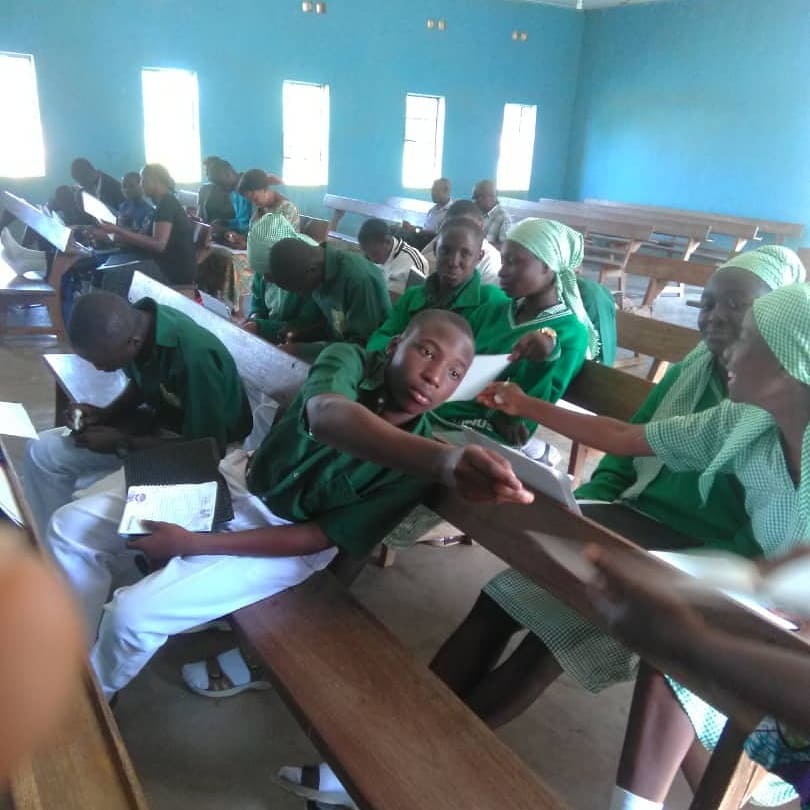
Nigeria is in the process of creating initiatives to support individuals with disabilities. I believe my project has helped create more awareness within the community about people who are blind and their needs. My hope is for more people to learn to write braille so that books and educational materials in braille will become cheaper and more readily available. For the school’s children to have a chance at a future career, it is important that they be given the same opportunities to learn the same skills as children without visual impairment. I hope to see people who are blind be given more career opportunities in law firms, media outlets, government offices, and schools. This inclusion will help break down barriers and create a more unified community.
About 150 people benefited from this project, including 50 students and 100 family members, friends, community members, and neighboring students. I plan to keep in touch with the school and follow the success of the children who participated. I also plan to share information with the school about job opportunities for the older students.
I want to thank the project team for helping and supporting this initiative. I want to thank COCIN headquarters representative Kumven Jenipher Rueben. From the College of Education in Gindiri, I would like to thank Stephen Sarah Nkem, Dabit Samuel Iliya, and Zamfara Grace Bizum. A big thank you also goes to Principal Rose Danyaya at the School for the Blind Children in Gindiri. I would also like to express my immense gratitude to the YES program, IRIS, and the U.S. Department of State, Bureau of Educational and Cultural Affairs.
#AccessForAll #ADA30
